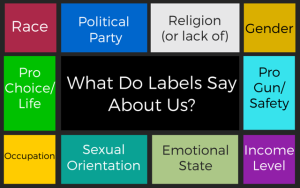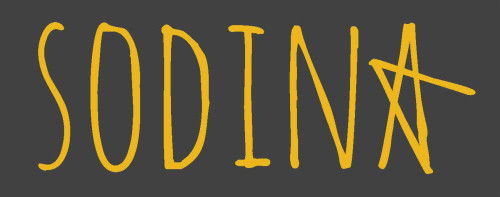
I was staring out the window where, 24 hours earlier, I had watched the SWAT truck, with its team hanging off, clad in body armor and rifles at the ready, drive down my street. In the background, I could see helicopters fly over the Sandy Hook Elementary School searching for more shooters. I can only describe the feeling as a sense or recognition that I was human, sharing a common bond with others. I distinctly remember, strange as it may sound, shedding any sense of idolization of others, we’re all human.
You and me? We’re the same.
At the most basic of levels, we are the same. We share 99.9% of our DNA. Yet, despite a relatively short amount of time on this planet and no guarantee of a tomorrow, we seem to be geared more towards competition rather than cooperation and collaboration, and we tend to focus on only the 0.1% that makes us different.
We’re brought into this world with an absolutely clean slate, blissfully unaware, innocent, a complete lack of knowledge–let alone any control over who raises us or how. At some point we begin to learn about our perceived differences, whether it’s our gender, ethnicity, socio-economic “status,” values, etc. These labels become ingrained in us. Sometimes they define us. But while we may accept the labels or the perceived differences on some level, we can paradoxically, and maybe conveniently, disregard them on another level when we assume that everyone should think or act the way we do.
Our country seems more divided today than ever. We seem to be divided and angry about (take your pick and add to the list if you want): our political party, race, income, religion (or lack thereof), gender, sexual orientation, geography, firearms, abortion, the definition of marriage, the war on drugs, war in general, crime, punishment, justice, and on it goes.
Labels, What Are They Good For?
Labels cause divisions among us (real or perceived) which– when I feel I’m right and you’re wrong, when I feel I’m better than you– begin to de-humanize the other person and make it easier to inflict emotional or physical pain or violence on him or her. Furthermore, although our technology-driven and connected world can bring about a sense of community and connectedness like never before, it can also conversely breed competition for “likes” and “followers,” and allows people to hide behind a Facebook/Twitter/Instagram/whatever app alias and tear into, belittle, or bully each other with words we’d never dare to say to someone directly, in person.
The question that has become front and center to me these days is how we treat each other and ourselves. Is it with less judgement, more empathy and compassion? Or not?
Labels can be dangerous and divisive if we think the person we attach them to is defined entirely by them, if we assume they (and ourselves) are incapable of nuances and grey areas, or closed to other belief systems or thought processes.
Labels serve to divide us and highlight our differences, but it’s our minds that inflate our dissimilarities so that we feel part of a particular group and/or feel superior over others.
Think about it. As soon as you label someone or yourself, you are highlighting the difference(s) between you and another person as a way to make a comparison, or delineate some division. I suspect that we do this out of a sense of wanting to belong to a group or community, but also maybe to draw a distinction of how we’re different—mostly, I’d argue, to put you down and boost myself up, or to assert that you’re wrong and I’m right.
In January of 2013, Joe Klein wrote No Labels. No Agenda. Some Hope in Time Magazine. Here’s an excerpt about a gathering sponsored by a centrist group called No Labels:
“The event … was revolutionary not only in its humility but also in its agenda. There was no agenda. They simply agreed to start talking to one another. ‘I’ve been a member of the Senate for 1½ years, and I’ve never been asked to attend a bipartisan meeting,’ said West Virginia Democrat Joe Manchin, who chairs the group with former Utah governor Jon Huntsman, a Republican. Furthermore, Manchin added, if you are caught seeking such meetings by your party leaders, you are accused of ‘guilt by conversation.”
Guilt by conversation? Is it any wonder that so many Americans on both sides of the political spectrum feel our government is broken?
Conversation should be defined not only as the act of speaking, but also by the art of active listening, by which I mean hearing what someone says, taking it in fully and without judgement. Conversation and active listening offer our best chance of finding common ground and finding commonality in our hopes, dreams and struggles. By talking and really, truly listening, we can build empathy, compassion and connectedness.
What do you think?: Do labels serve a useful purpose? Does suspending judgement and de-labeling each other sound too idealistic or naïve? Is the idea of conversing while trying to suspend judgement–to carefully listen in order to understand where someone might be coming from–an idea worth pursuing, even if we might not find common ground, compromise, or be able convince someone to accept our point of view?
The Sodina Project shares stories to foster connection and save lives. This grass-roots movement needs your help in connecting with others. Please share the stories and blog posts with your friends and social networks if they have moved you or made you reflective. You will find sharing options at the end of each post.
If you have a story to share about the death of a loved one as a result of violence, please submit your story here.
Sodina | Voices to Stop Violence
#Sodina | #Voicestostopviolence







Leave a Comment